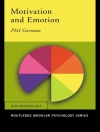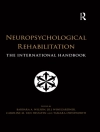The second edition of Children’s Testimony is a fully
up-to-date resource for practitioners and researchers working in
forensic contexts and concerned with children’s ability to provide
reliable testimony about abuse.
* Written for both practitioners and researchers working in
forensic contexts, including investigative interviewers, police
officers, lawyers, judges, expert witnesses, and social
workers
* Explores a range of issues involved with children’s testimony
and their ability to provide reliable testimony about experienced
or witnessed events, including abuse
* Avoids jargon and highly technical language
* Includes a comprehensive range of contributions from an
international group of practitioners and researchers to ensure
topicality and relevance
Table des matières
Contributors.
Series Preface.
Acknowledgements.
1 Developmentally Sensitive Interviewing for Legal Purposes
(Lindsay C. Malloy, David J. La Rooy, Michael E. Lamb, and
Carmit Katz).
2 Setting Realistic Expectations: Developmental Characteristics,
Capacities and Limitations (Michael E. Lamb, Lindsay C. Malloy,
and David J. La Rooy).
3 The Development of Memory in Childhood (David J. La Rooy,
Lindsay C. Malloy, and Michael E. Lamb).
4 Assessing the Competency of Child Witnesses: Best Practice
Informed by Psychology and Law (Thomas D. Lyon).
5 Planning the Interview (Kevin Smith and Rebecca
Milne).
6 Rapport Building in Investigative Interviews of Children
(Irit Hershkowitz).
7 Practice Narratives (Kim P. Roberts, Sonja P. Brubacher,
Martine B. Powell, and Heather L. Price).
8 Investigating Substantive Issues (Yael Orbach and
Margaret-Ellen Pipe).
9 Reviewing the Case (Post-interview) (Trond Myklebust and
Gavin E. Oxburgh).
10 Managing Children’s Emotional and Clinical Needs (Kathryn
Kuehnle and Mary Connell).
11 Training Forensic Interviewers (Heather Stewart, Carmit
Katz, and David J. La Rooy).
12 The Use of Supplementary Techniques in Forensic Interviews
with Children (Deirdre A. Brown).
13 Children with Intellectual Disabilities and Developmental
Disorders (Lucy A. Henry, Caroline Bettenay, and Daniel P.J.
Carney).
14 Evidence and Cross-Examination (John R. Spencer).
15 Children’s Disclosure Statements as Evidence in the United
States Legal System (John E.B. Myers).
16 Consequences of Legal Involvement on Child Victims of
Maltreatment (Jodi A. Quas and Mariya Sumaroka).
17 Expert Testimony (Bryan Tully).
18 Relationship between Research and Practice (Graham M.
Davies and Lindsay C. Malloy).
19 Child Protection Considerations in the United States
(Richard J. Gelles and Rebecca Brigham).
20 Facilitating Effective Participation by Children in the Legal
System (Lindsay C. Malloy, David J. La Rooy, and Michael E.
Lamb).
Appendix: The National Institute of Child Health and Human
Development (NICHD) Protocol: Interview Guide.
Index.
A propos de l’auteur
Michael E. Lamb is Head of the Department of Social and
Developmental Psychology at the University of Cambridge, UK.
David J. La Rooy holds a Research Lectureship funded by
the Scottish Institute for Policing Research at the University of
Abertay Dundee, where he is responsible for the Forensic
Psychobiology Degree.
Lindsay C. Malloy is Assistant Professor of Legal and
Developmental Psychology at Florida International University,
US.
Carmit Katz is Research Associate in Applied
Developmental Psychology at the University of Cambridge, UK.












